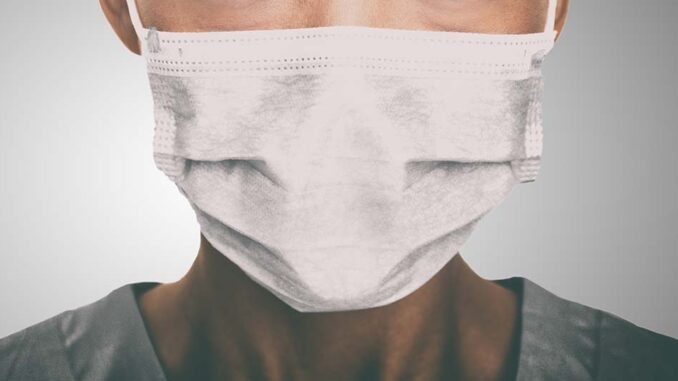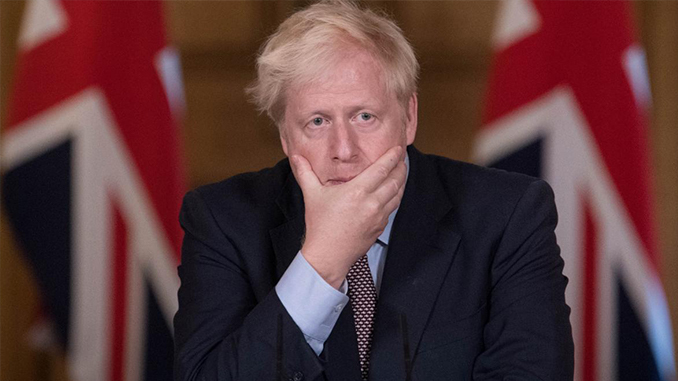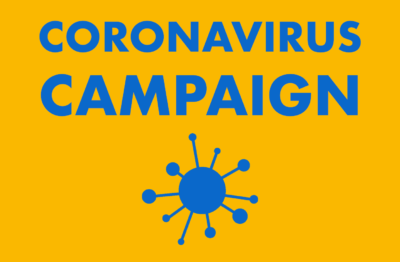
Although the title of the recent highly critical Commons report on the pandemic was ‘Coronavirus: lessons learned to date’, very few lessons appear to have been learned. At the time of writing (October 25th), one in 55 people in England have Covid, the highest level since January 2021. The pandemic isn’t over and the Government must still be held accountable.
Despite the relative quiet in the mainstream media, these are the facts: Weekly Covid death tolls are approaching 1000. Infection rates in the UK are more than 18 times those in Spain and more than nine those in France. The government’s Scientific Advisory Group on Emergencies has warned of the need for a possible winter lockdown if measures are not taken now to tackle rising infections. The Chief Scientific Adviser to the government advised to “go hard and go early” with coronavirus restrictions if cases surge (as they are doing), but the government has continued to paint an optimistic picture and wishes to give the impression that there is no cause for concern.
In contrast, local public health chiefs in England are beginning to break away from government guidance and at least a dozen have called on their population to go back to mask wearing and working from home.
The NHS and Care services are at breaking point
Meanwhile, in the real world, the NHS is under severe pressure and expecting worse to come as winter, influenza and Respiratory Syncytial Virus return. Necessary infection control measures during the pandemic have seen another 9,000 beds taken out of commission, making it even more difficult for the health service to catch up with the backlog of work. In the 30 years before the pandemic, numbers of NHS hospital beds have more than halved giving the UK one of the lowest numbers of beds for its population in Europe. Half the acute hospitals in England are averaging 95% bed occupancy (85% being regarded as the acceptable maximum), with 5.6% taken by Covid patients (more than 5,000 patients at any one time). The proportion of patients attending A&E departments and being seen within four hours has fallen to 64% (with a national target of 95%). This, together with lack of beds, means ambulances sit waiting outside A&E, with crew unable to transfer their patient or respond to other calls. Recently, every ambulance service in the countrywas on the highest state of alert due to such pressures. In addition, care homes are now refusing to take patients from hospital to free up beds because of their own staffing shortages. These have been needlessly exacerbated by the government’s policy of ‘no jab – no job’.
Crisis – what crisis?
Figures show further increases in numbers of patients waiting for treatment, standing now at nearly six million while NHS staffing shortages are leading to cancelled operations. General practitioners (primary care physicians) have dealt with 196.8 million appointments so far this year – up 12% on 2019 – but have been vilified as lazy in some of the national press. This campaign has generated verbal and physical abuse of staff and been supported by Sajid Javid, the Secretary of State for Health no less. GPs are now considering industrial action while other health trade unions are already balloting members over strike action in relation to a below inflation pay offer.
The Care Quality Commission has warned of a “tsunami” of people without the care they need this winter unless staff shortages are tackled. The chief executive of the NHS Confederation (a membership body for organisations that commission and provide NHS services) appealed to the government saying:
You have got to recognise that we need a national mobilisation. You’ve got to recognise there is a health and care crisis coming over the next three or four months and accept it, acknowledge it and encourage the public to do everything they can to help.
The head of the British Medical Association representing doctors has said the government is being “wilfully negligent” in not reintroducing mandatory mask wearing indoors and encouraging work from home. Meanwhile, having returned from a holiday break in Spain, the prime minister insists the only effective way of combating the pandemic is to press ahead with the booster vaccination programme, that everything is under control and there is nothing to worry about.
There are none so blind as those who will not see
Despite all the above, Sajid Javid stated in a recent press conference on Covid (the first for five weeks):
We don’t believe that the pressures that are currently faced by the NHS are unsustainable.

Arguing that the NHS is in fact coping, while happily predicting daily Covid cases may rise to 100,000. To add to this surreal situation, the Leader of the House of Commons, Jacob Rees-Mogg, claimed that Conservative MPs do not need to wear masks when in parliament because they know each other. Nowhere are there consistent public health messages about reducing infection to be heard other than through vaccination, and little attention has been given to improving ventilation in buildings, for example with only 8% of schools having received promised carbon dioxide monitors.
Incompetence, indifference or democide?
The present pandemic management policy in Westminster is indifferent to the loss of life, the long term complications of Covid in survivors and the impact on NHS staff and other frontline workers. This raises the question as to whether this amounts to democide (“the killing of members of a country’s civilian population, as a result of its government’s policy, including by direct action, indifference, and neglect”), “social murder”, gross negligence manslaughter, or misconduct in a public office? Campaigners who have raised such possibilities have watched with interest as French police searched the homes and offices of officials including the former prime minister as part of an investigation into the government’s handling of the coronavirus crisis. Current and former ministers of the French government have been targeted by at least 90 formal legal complaints from civic groups and members of the public over their response to the health emergency. In addition, a Brazilian congressional panel has recommended that President Jair Bolsonaro be charged with “crimes against humanity,” asserting that he intentionally let the coronavirus rip through the country and kill hundreds of thousands in a failed bid to achieve herd immunity and revive Latin America’s largest economy.
Fighting back
While considering such legal challenges, now is the time for a concerted effort to link concerned patients, health and care workers, trade unions and health and social care campaigners in the fight back for a fully publicly funded, provided and planned health, care and independent living service. This is needed urgentlybefore public and staff confidence in the founding principles of the NHS have been irreversibly eroded – leaving private providers as the only winners.
John Puntis co-chair Keep Our NHS Public







Leave a Reply